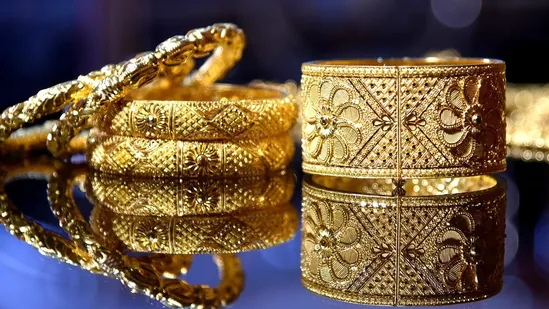When it comes to gold jewelry, trust begins with authenticity. Whether you are a retailer, a designer, or a business owner looking to grow your brand, understanding gold purity, hallmarks, and certifications is one of the most important parts of making smart business decisions. In the world of wholesale gold jewelry these elements not only protect buyers from fraud but also build customer confidence and long-term credibility.
Gold has been treasured for centuries, but not all gold is created equal. Knowing how to identify genuine, high-quality pieces can help you avoid costly mistakes and build stronger partnerships with trusted suppliers.
Why Gold Purity Matters in Wholesale Gold Jewelry
Gold purity simply refers to how much pure gold is present in a piece of jewelry compared to other metals. Pure gold is 24 karats, which means it is 99.9 percent gold. However, pure gold is soft and not practical for daily wear, so it is often mixed with other metals like copper, silver, or zinc to increase its strength and durability.
In wholesale gold jewelry, the most common purities are 22K, 18K, and 14K.
22K gold contains about 91.6 percent pure gold and is known for its rich color and value.
18K gold contains 75 percent pure gold and is a popular choice for fine jewelry that balances quality and durability.
14K gold contains 58.3 percent pure gold and is often used for everyday jewelry because of its strength and affordability.
Understanding these purity levels helps wholesalers and retailers set accurate prices, manage inventory wisely, and ensure customers receive exactly what they pay for.
The Importance of Hallmarks in Gold Jewelry
A hallmark is an official mark stamped on a piece of jewelry to certify its purity and authenticity. It acts like a fingerprint, showing that the item has been tested and approved by a recognized authority.
Hallmarks typically include details such as:
- The karat or fineness of the gold (for example, 22K or 18K).
- The jeweler’s or manufacturer’s mark.
- The assay office stamp or certification symbol.
- The year or batch mark.
In wholesale gold jewelry, hallmarks play a critical role in building trust between suppliers and buyers. When wholesalers provide properly hallmarked products, retailers can confidently resell them without worrying about quality disputes. Customers, in turn, feel more secure when they know the gold has been verified.
Gold Certification and Why It Matters
While hallmarks show the purity of gold, certification adds another layer of security. Certification is issued by an independent authority that verifies the gold content and quality. This document or digital record provides proof that the gold meets national or international standards.
Common types of certification include government-approved assay offices, industry associations, or internationally recognized labs. In many countries, it is a legal requirement for wholesale gold jewelry suppliers to provide certification with every piece they sell. Even where it is not required by law, offering certification can help suppliers stand out and build stronger buyer relationships.
For retailers, buying certified gold jewelry reduces the risk of counterfeit or low-quality products. For customers, certification brings peace of mind and strengthens trust in your brand.
Spotting Fake or Misleading Hallmarks
Not all hallmarks are genuine. Some suppliers use fake stamps or marks that look official but are not recognized by legitimate authorities. This is why buyers in the wholesale gold jewelry business must learn how to identify authentic hallmarks.
Red flags to watch for include:
Stamps that are unclear, smudged, or inconsistent
Marks placed in unusual locations on the jewelry
Certificates that do not match the hallmark on the piece
Suppliers who refuse to provide proof of testing or certification
Conducting regular inspections, using gold testing kits, or partnering with independent assay offices can help ensure you are not falling for counterfeit products.
How Purity and Certification Affect Pricing
The purity and certification of gold directly influence its price. Higher karat gold, such as 22K, typically costs more than 14K because it contains a larger percentage of pure gold. Certified pieces often have a premium price because they offer verified authenticity and legal protection.
In wholesale gold jewelry transactions, pricing transparency is key. Reputable suppliers will clearly explain how purity and certification affect the cost, allowing retailers to make informed buying decisions and set fair markups for their customers.
Building Customer Trust Through Transparency
In today’s market, customers are smarter and more cautious than ever. They want to know what they are paying for, and they value honesty and transparency. When retailers clearly explain gold purity, hallmark details, and certification standards, it builds long-term trust.
Wholesalers who consistently provide authentic, certified products strengthen their reputation in the market. Retailers who pass this trust to their customers create loyal buyers who return again and again.
Partnering with the Right Wholesale Gold Jewelry Supplier
Choosing a trusted wholesale gold jewelry supplier is just as important as understanding gold purity and certification. A reputable supplier will be transparent about their sourcing, provide accurate hallmarks, and offer legitimate certification for every piece. They will welcome questions, allow verification, and stand behind their products.
Before committing to a supplier, always check their references, certifications, and reviews. A good supplier is not just a vendor. They are a long-term partner in your business growth.
Final Thoughts
Gold jewelry is not just a product. It is a promise of quality, beauty, and trust. Understanding gold purity, hallmarks, and certification gives you the knowledge to protect your business and your customers. It helps you make smarter purchasing decisions, set fair prices, and build lasting relationships with both suppliers and buyers.
In the competitive world of wholesale gold jewelry, transparency and trust are your strongest advantages. By learning how to verify authenticity and partner with reputable suppliers, you can build a brand that customers believe in and return to with confidence.

